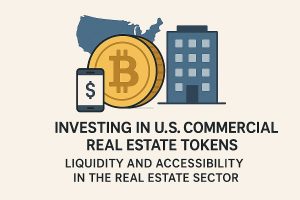In the ever-evolving landscape of personal finance, digital financial education is empowering young Americans to take control of their money and build a more secure future. With technology at their fingertips, an increasing number of young adults are gaining access to essential financial knowledge and tools that were previously challenging to obtain.
These learning tools are designed to ensure youth are no longer spectators in their financial journeys; instead, they become well-informed participants. The focus on digital financial education reflects a broader societal shift towards technology-driven solutions, making personal finance a subject that is both accessible and engaging.
The rise of digital financial education platforms

With the advent of innovative tech solutions, digital financial education platforms have gained prominence, transforming how young Americans learn about money. Platforms such as podcasts, social media accounts, and educational websites provide bite-sized, digestible content tailored to younger audiences. This approach makes financial literacy accessible, removing the traditional barriers that discouraged many from seeking financial knowledge.
These platforms often incorporate gamification elements and interactive scenarios that engage young learners in meaningful ways. By forming alliances with schools and universities, these digital avenues extend the reach of vital financial education.
Students no longer have to rely solely on traditional educational systems; they can explore self-paced courses online, enhancing their comprehension. This digital shift empowers them to absorb and apply critical financial concepts in their daily lives, leading to smarter monetary choices.
Individualized learning experiences further bolster these platforms’ effectiveness. Young Americans can tailor their learning paths to suit individual needs, ensuring that they grasp the necessary skills pertinent to their specific life circumstances.
Personalized feedback and progress tracking enable learners to focus on areas that require improvement and celebrate their achievements. This continuous loop of learning and growing provides an edge in financial education that traditional methods lack, providing a solid foundation for future financial stability.
Key benefits of digital financial education
Digital financial education offers several compelling benefits, fostering an environment where young adults can thrive financially. Firstly, it provides flexibility, allowing learners to study at their own pace and convenience. With mobile apps and online platforms, access to financial knowledge is no longer restricted by time or location, granting users the freedom to engage whenever suits them best.
Secondly, cost-effectiveness is a significant advantage of digital learning. Many online financial education resources are free, lowering the barrier to entry for acquiring crucial financial skills. This free access ensures everyone can benefit, regardless of their financial situation, promoting wider financial literacy and inclusivity. As a result, more young individuals can make informed choices about their financial futures.
Moreover, digital platforms encourage active engagement through interactive content. Learners are not just passive receivers of information but are actively involved, increasing retention and application of learned financial concepts. The hands-on experience, combined with simulations and real-world scenarios, helps translate theoretical knowledge into practical skills, empowering young Americans to take control of their personal finances with confidence.
Integrating financial education into schools
The integration of digital financial education into the school curriculum is a pivotal step in ensuring widespread financial literacy among young Americans. Many educational institutions now recognize the need to equip students with essential financial skills, increasing the demand for comprehensive digital resources in classrooms. Through this integration, students gain foundational knowledge essential for navigating today’s complex financial landscape.
Effective partnerships between schools and technological platforms are critical to successfully embedding financial literacy into education systems. These collaborations enable educators to provide students with curated content that meets specific learning objectives. By including modules on budgeting, saving, credit management, and investing within academic curricula, the gap in financial literacy narrows, preparing students for real-world financial challenges.
The structured approach offered by schools complements self-directed digital resources, creating a balanced educational experience. Students enjoy the benefits of guided learning while having the flexibility to explore deeper financial topics independently. This comprehensive strategy ensures young Americans receive a well-rounded financial education, fostering a generation capable of thoughtful and informed financial decision-making.
The future impact
As digital financial education continues to evolve, it is set to have a profound impact on young Americans’ financial independence and stability. The ever-improving digital tools and resources are shifting the financial education paradigm, creating a culture where financial literacy is a foundational skill. This shift is poised to strengthen individuals’ ability to manage their finances wisely, promoting long-term economic health.
The ripple effects of a financially educated youth extend beyond individual benefits; they contribute to a more informed society. As young people become financially savvy, they make decisions that support economic growth and responsible financial behaviors.
This new generation of financially literate individuals is more likely to avoid debt traps, invest responsibly, and contribute positively to their communities, setting an example for future generations.Digital financial education is crucial in preparing young Americans for a future defined by financial challenges and opportunities.
By embracing these cutting-edge tools and resources, today’s youth are not just securing their financial well-being; they are paving the way for a more informed and financially resilient society. As these educational methodologies continue to advance, they promise to equip future generations with the knowledge and confidence necessary to navigate the ever-changing financial landscape successfully.



